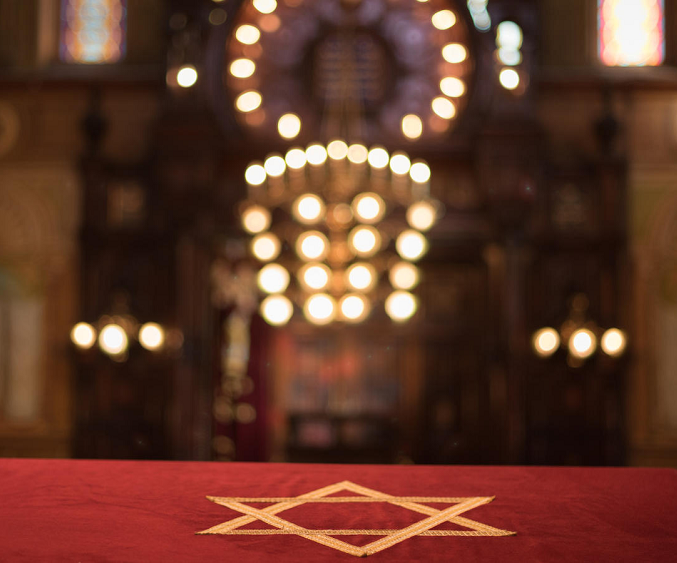
The Rambam, in Hilchos Teffilah, writes that any place where there are ten Jews living, must have a place where they can come to daven all the teffilos. This is called a Bais Haknesses. The Mechaber (Orach Chaim 150:1) says that people of a city can force one another to give money in order to build a Bais Haknesses. If the community can’t build a Bais Haknesses, then they must rent a place where they can daven. However the Aruch Hashulchan says that as soon as they are able to build they are obligated and can be forced to do so. The level of kedusha of a Bais Haknesses which is rented is a lower level than that which is their own. Therefore they cannot say that renting is enough for them.
This halacha also applies if there is not enough room in the existing Bais Haknesses, or it is far away and not everyone can walk there. Also if renovations must be made for the benefit of the davening or learning, then there is also an obligation for everyone to pay for it. However if it is only to beautify the Bais Haknesses, then people can’t be forced to pay. If there is a difference of opinion amongst the congregation if the renovations are necessary, Bais Din should decide.
The Mechaber also says that they are obligated to buy Torah, Neviim and Kesuvim, so people from the congregation can learn from them. The Mishnah Berurah says that today people learn from seforim, so they are obligated to buy seforim. The Aruch HaShulchan says that this includes Mishnayos, Gemara, Shulchan Aruch, Rambam, Tur, Poskim, Rishonim, Sifrei Drush and Aggadah.
Can the tzibbur be forced to buy Neviim so the Haftorah can be read from a klaf? The Mishnah Berurah (Siman 284) discusses the halacha of reading the Haftorah from a klaf. He says that one should try to do so. This was the minhag of the Gr”a. However one should not protest against those whom are lenient. The Shulchan Aruch Harav holds there was never a takanah to read the Haftorah from a kosher sefer. In the Bais Hamidrash of the Chasam Sofer the Haftorah was not read from a klaf.
Based on the halacha that there is an obligation to buy seforim, the Biur Halacha says that if there is no Bais Hamidrash and for whatever reason learning cannot take place in the Bais Haknesses, everyone is obligated to build a Bais Hamidrash. What benefit is there in having seforim if there is no place to sit and learn from them? Also if they are obligated to build a Bais Haknesses for tefillah which the Gemara calls “Chayei Shaa” – a necessity for life in this world, how much more so for limud hatorah which is called “Chayei Olam” – life for eternity.
The opinion of the Zohar Hakadosh is that building a Bais Haknesses is included in the Torah commandment of “V’asu li Mikdash” – make for Me a sanctuary. Others are of the opinion that it is only a mitzvah M’Derabanan. Others hold that it is not even a mitzvah M’Derabanan, rather a communal obligation. The Sefer Tzedakah U’Mishpat says that today we don’t have the authority to force people to give money. However, the people should be convinced by explaining to them the importance of building a Bais Haknesses.

Many Poskim are of the opinion that a Bais Haknesses should not be built by non-Jews. However if the non-Jews will do a better and nicer job it is permitted to use them. This is the accepted practice. If possible yidden should also try to help.
The Bais Haknesses must be built in the highest area of the city. It should be higher than all the houses in the city. Many communities are not careful about this halacha and build their homes higher than the Bais Haknesses. The Mishnah Berura explains the reason is because the Bais Haknesses anyways won’t be the highest building, since many of the non-Jews homes are already higher than it. However since the Gemara is very stringent on this halacha a person should do whatever possible that his home should not be higher than the Bais Haknesses. Also the Maharam Shick says that the heter because of the non-Jewish homes doesn’t apply to the homes that are in the same courtyard as the Bais Haknesses.
Not every single Bais Haknesses in the city has to be higher than the homes. The Sfas Emes says that as long as one of the Batei Knessios in the city is higher, it is enough. The Chazon Ish said that in Bnei Brak since Ponovezh and Slabodka are higher than the rest of the city, it is fine for the other Batei Knessios not to be higher than everything else. There are many other approaches as to why many communities are lenient with this halacha. There is a machlokes if this halacha applies to Batei Midrash as well.1
Prepared by R’ Avrohom Yehoshua Ziskind
__________________
1Sources: Mishnah Berurah, Dirshu, Piskei Teshuvos